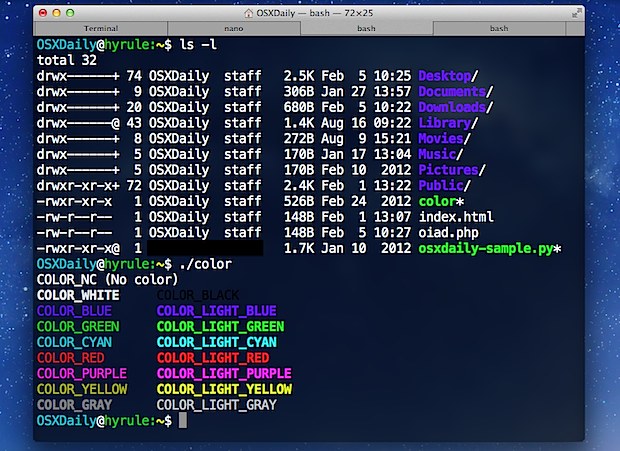The Terminal app on the Mac can help identify which ancillary services and processes running in the background may be causing your Mac to slow down. The Terminal application helps the user get inside macOS via a command line interface. They likely have a team of engineers for the Windows version and a separate team for the Mac version. With the 4 of us on the Terminal, I'm not sure it's really feasible for us to try and support an entirely separate UI stack. If WinUI, DirectX, and WinRT were available on OSX, then it would be trivial for us to port the Terminal to MacOS.
Most users use Disk Utility to erase a disk or hard drive. But some Mac users might need to erase them from the command line on Mac OS. To do that, the only thing you need is a bit of precise syntax to make sure that you are erasing the proper disk.
Here I'll show you how you can erase and format a disk using the command line.
Working with Terminal
Start off by running the following command in the command line: Diskutil list
Terminal Macos Admin
Vrjackets mac os. This is going to list all the mounted drives on your Mac.
Once you have found the proper drive to erase, just copy its identifier so you can use it for the next command. https://subperfaumarvicu.netlify.app/prime-time-mac-os.html. Then pick a name and a system format type. This is the syntax we need: Diskutil eraseDisk FILESYSTEM DISKNAME DISKIDENTIFIER

Rota mac os. Let's say the disk I want to erase has '/dev/disk5s2' as its identifier and I'm going to use Mac OS Extended Journaled (JHFS+) as the system format type and name it 'Empty'. The syntax is going to look like this: Diskutil eraseDisk JHFS+ Empty /dev/disk5s2
Macos Terminal App
It's important to keep in mind that if you run the eraseDisk command, the target disk is going to lose all its data, so make sure you are erasing the proper disk. Planet 7 oz.
Foxback mac os. If you need different system format types, here are a few references you could use instead of JHFS+:
Terminal Mac Os Get Ip Address
- Mac OS Extended: HFS+
- MS-DOS fat32: FAT32
- ExFAT: ExFAT

